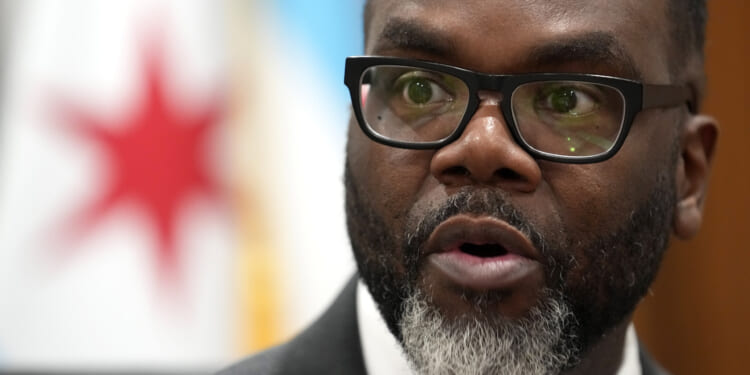Chicago Mayor Brandon Johnson proposed a $21-per-employee monthly tax on large companies to help fill a nearly $1.2 billion shortfall. Business leaders and even a former mayor say the “head tax” could kill job creation and new investment.
Chicago Mayor Brandon Johnson is staring down a projected $1.19 billion budget shortfall for 2026. His solution? Reviving a tax that punishes job creation: a corporate “head tax.”
What is a “head tax?”
A “head tax” charges businesses a fixed fee for each of their employees Under Johnson’s proposed budget, this would cost businesses with over 100 Chicago-based employees $21 a month per worker.
While Johnson’s budget proposal estimates this new tax on job creation would generate about $100 million in revenue next year, and potentially more over time as the fee increases with inflation, business leaders and city officials have long warned it’s “a job killer.”
This wouldn’t be the first “head tax” in Chicago or the first time Johnson has pushed it. Chicago previously levied a $4 per employee “head tax” on businesses with 50 or more workers between 1970 and 2014.
Why did Chicago get rid of it?
It was phased out under former Mayor Rahm Emanuel, who believed eliminating the fee would spur economic development and job creation.
“The Head Tax is a job killer,” Emanuel said in a 2011 press release. “Eliminating the head tax is the right thing to do for businesses big and small and it’s the right thing to do to secure Chicago’s future. With this step, Chicago has become an even better place to start a business and we’ve enabled those businesses to create more jobs for Chicagoans.”
The Chicago Chamber of Commerce expressed similar concerns about the “head tax” in a statement responding to Johnson’s 2026 budget proposal. President and CEO of the Chicago Chamber of Commerce, Jack Lavin, said the tax and others would disincentivize job creation and investment.
“Rather than embracing shared sacrifice, this budget seeks to tax and borrow its way out of a deficit and, in the process, disincentivize job creation and hiring, deter relocation and expansion,” Lavin said,” and make Chicago less attractive at a time when national and global competition for jobs and investment is at an all-time high.”
When would it start?
If adopted by the City Council, the tax would go into effect in 2026 alongside the city budget and directly impact about biggest 3% of Chicago’s businesses. Specifically, those with employees who spend at least 50% of their time working in the city.
Johnson said the tax revenue will go to the new community safety fund, where it will be used to support programs including youth employment, violence intervention, grants and mental health for police in lieu of expiring federal COVID relief dollars.
Businesses in Chicago already pay the third-highest state corporate income tax rates in the nation. They also pay the highest commercial property taxes in the U.S.
Chicago doesn’t need to take another chance on tax hikes that have already failed them in the past. The city needs structural fiscal reform, smarter spending and a tax climate that supports job growth.
Click here to contact your Chicago City Council member and tell them to oppose the corporate “head tax.”










